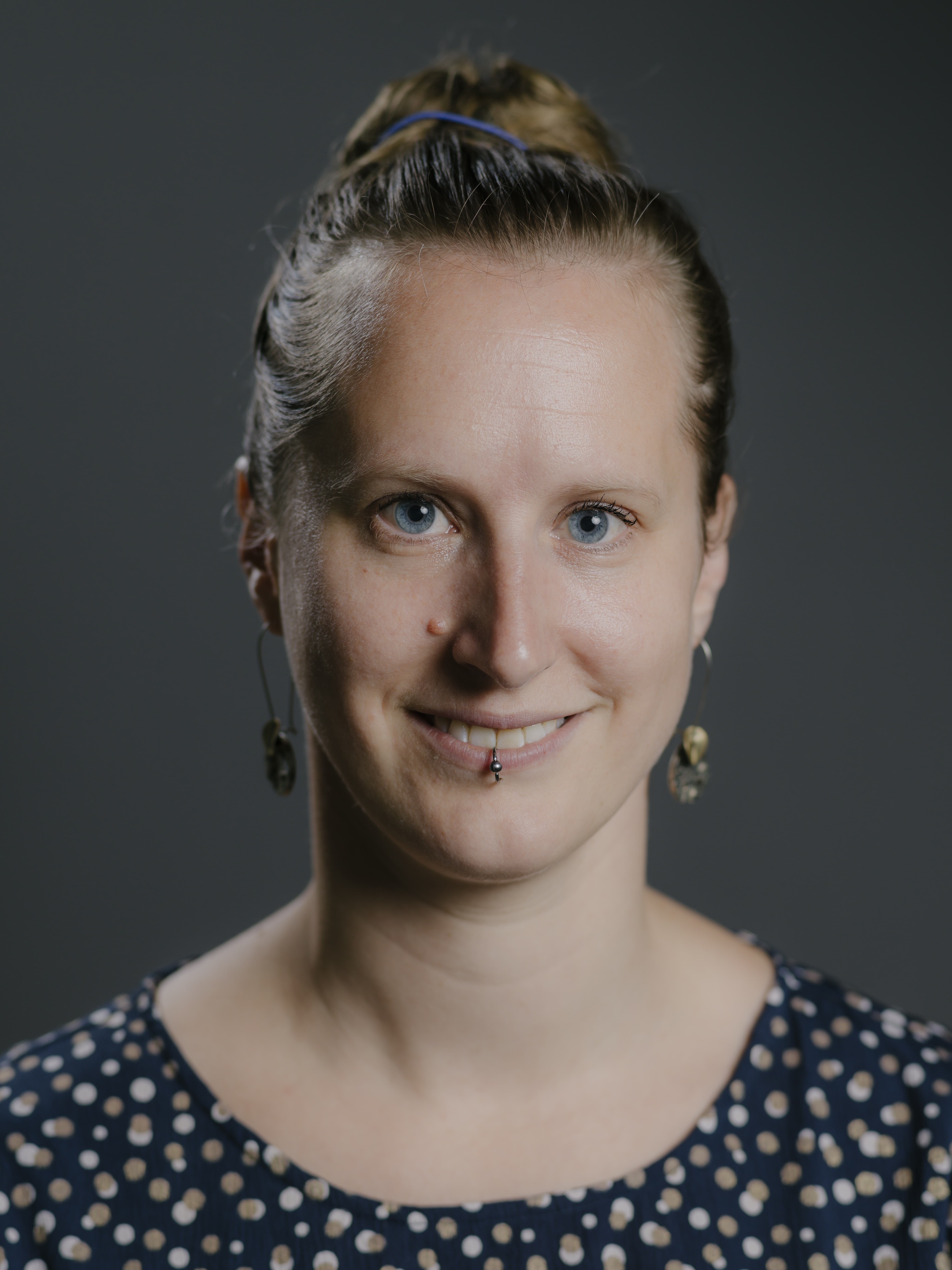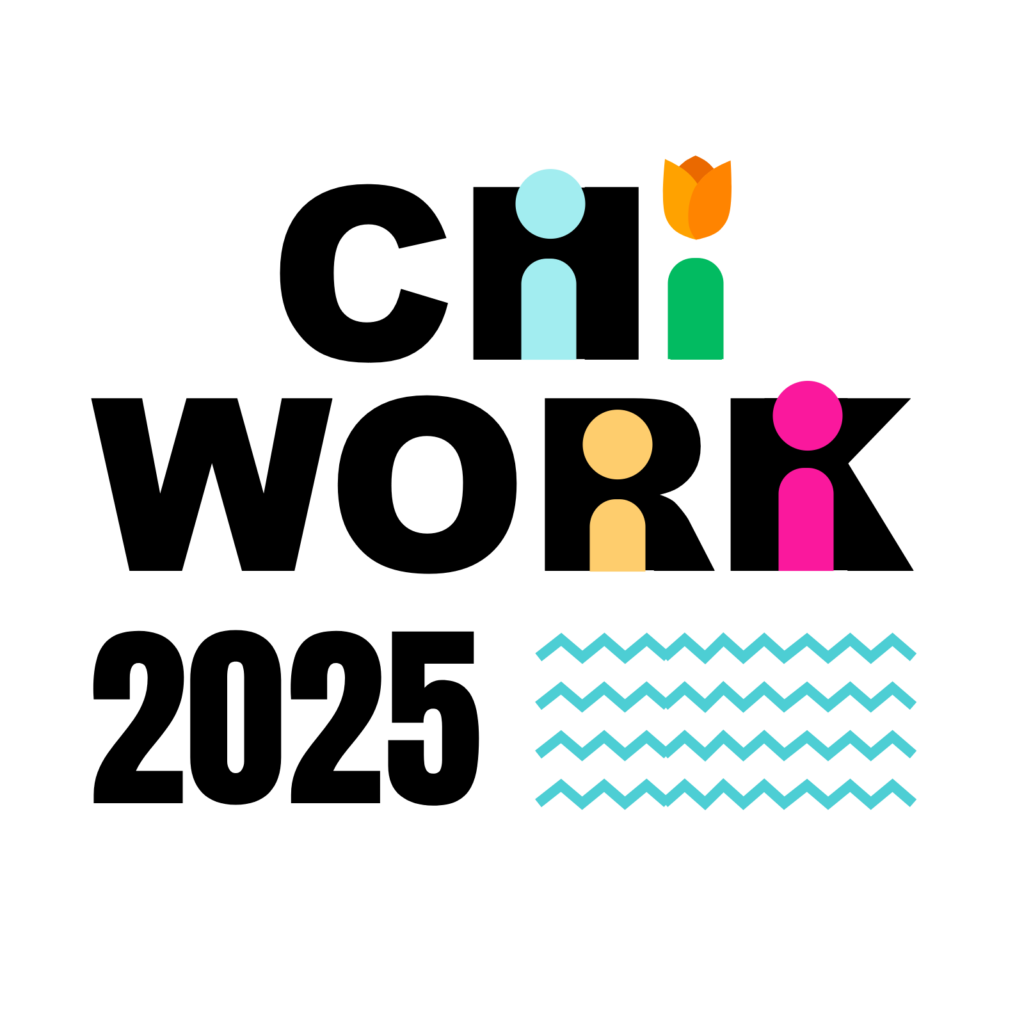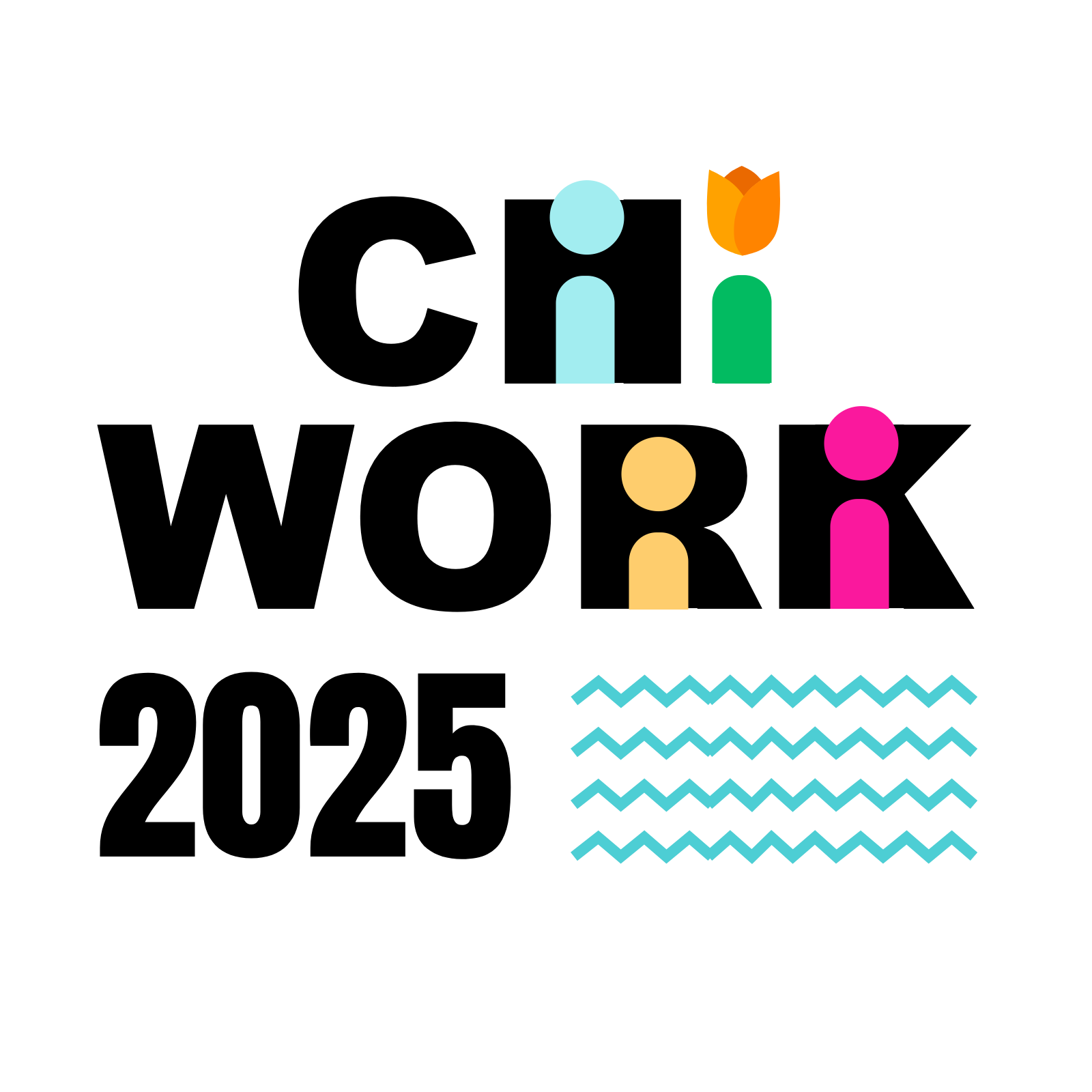DAY 1
WORKSHOPS AND STUDENT CONSORTIUM
Monday, June 23
| Time | Session | Room |
| 8:30 – 9:00 | REGISTRATION | |
| 9:00 – 10:30 | Student Consortium | L016 |
| W1: Navigating Generative AI Disclosure, Ownership, and Accountability in Co-Creative Domains | L017 | |
| W2: The Future of Human-Robot Synergy in Interactive Environments: The Role of Robots at the Workplace | L015 | |
| 10:30 – 11:00 | COFFEE | Forum |
| 11:00 – 13:00 | Student Consortium | L016 |
| W1: Navigating Generative AI Disclosure, Ownership, and Accountability in Co-Creative Domains | L017 | |
| W2: The Future of Human-Robot Synergy in Interactive Environments: The Role of Robots at the Workplace | L015 | |
| 13:00 – 14:30 | SELF-ORGANIZED LUNCH | |
| 14:30 – 16:00 | W3: Paving the Way for AI that Supports Flourishing at Work | L016 |
| W4: The Future of Work in Mobility and Transportation | L017 | |
| W5: Enhancing Performance or Hijacking Attention? A Workshop on the Use of AI in Workplace Environments | L120 | |
| 16:00 – 16:30 | COFFEE | Forum |
| 16:30 – 18:30 | W3: Paving the Way for AI that Supports Flourishing at Work | L016 |
| W4: The Future of Work in Mobility and Transportation | L017 | |
| W5: Enhancing Performance or Hijacking Attention? A Workshop on the Use of AI in Workplace Environments | L120 | |
DAY 2
Technical Program
Tuesday, June 24
| Time | Session | Room |
| 08:30 – 09:00 | REGISTRATION | |
| 09:00 – 10:00 | Keynote by Felienne Hermans | Turing |
| 10:00 – 10:30 | COFFEE | Lobby |
| 10:30 – 11:30 | SESSION 1 – MEDIATING COLLABORATION: FEEDBACK, VISIBILITY, AND VIRTUAL PRESENCE | Turing |
|
Framing the (in)visible: Insights into Visibility Practices of Remote Knowledge Workers Mahan Mehrvarz, Dave Murray-Rust, Himanshu Verma and Ben Wagner |
||
|
tAIfa: Enhancing Team Effectiveness and Cohesion with AI-Generated Automated Feedback Mohammed Almutairi, Charles Chiang, Yuxin Bai and Diego Gomez-Zara |
||
|
What Does Success Look Like? Catalyzing Meeting Intentionality with AI-Assisted Prospective Reflection Ava Elizabeth Scott, Lev Tankelevitch, Payod Panda, Rishi Vanukuru, Xinyue Chen and Sean Rintel |
||
|
Perception in Pixels: Effects of Avatar Representation in Video-Mediated Collaborative Interactions (Online) Pitch Sinlapanuntakul and Mark Zachry |
||
| 11:30 – 12:30 | SESSION 2 – AI IN HIGH-STAKES AND INSTITUTIONAL WORK | Turing |
|
Interacting with AI at Work: Perceptions and Opportunities from the UK Judiciary Erin Solovey, Brian Flanagan and Daniel Chen |
||
|
Cleared for Takeoff – Artificial Intelligence Acceptance in Air Traffic Control Jasper Schon, Carmen Bruder, Magnus Liebherr and Sabine Theis |
||
|
“ChatGPT, Don’t Tell Me What to Do”: Designing AI for Context Analysis in Humanitarian Frontline Negotiations Zilin Ma, Yiyang Mei, Claude Bruderlein, Krzysztof Gajos and Weiwei Pan |
||
|
Envisioning the Future of Peer Review: Investigating LLM-Assisted Reviewing Using ChatGPT as a Case Study (Online) Shiping Chen, Duncan Brumby and Anna Cox |
||
| 12:30 – 13:30 | LUNCH | Newton |
| 13:30 – 14:30 | SESSION 3 – DESIGNING FOR FOCUS AND FLOW | Turing |
|
Are Six Minutes of Focus Enough? An Exploratory Study of Multitasking Patterns in Workplace Environments Dinara Talypova, Aku Visuri, Ambika Shahu, April Wang and Philipp Wintersberger |
||
|
“I Work Much Better by Doing Less”: How Task Duration Feedback Affects Optimistic Planning Bias in Academic Work Yoana Ahmetoglu, Akeisha Iskandar, Shermin Taoh, Andy Ying, Duncan P. Brumby and Anna L. Cox |
||
|
Bridging Analog and Digital: Exploring the Present and Future of Digital Pens in Supporting Planning at Work Yoana Ahmetoglu, Jon Mella, Anna Dowthwaite, Rosalyn Chun, Gloria Gao, Pradakshina Goswami, Sijia Li, Maggie Liu, Tianchen Tao, Suizi Tian, Anto Wu and Anna L. Cox |
||
|
When Efficiency Meets Fulfillment: Understanding Long-term LLM Integration in Knowledge Work Charlotte Kobiella, Teodora Mitrevska, Albrecht Schmidt and Fiona Draxler |
||
| 14:30 – 16:00 | COFFEE + POSTERS + DEMOS | Forum |
| 16:00 – 17:00 |
Conversation session:
What Makes a Good Workplace? Tasks, Trust, Time-Off and Differences Christian Janssen, Samuele Murtinu, Anna Cox and Jacki O’Neill |
Turing |
| 18:00 – 19:30 | BOAT CRUISE | |
| 19:30 – Late | CONFERENCE DINNER | Kop van Oost |
DAY 3
Technical Program
Wednesday, June 25
| Time | Session | Room |
| 08:30 – 09:00 | COFFEE | Lobby |
| 09:00 – 10:00 | SESSION 4 – EVERYDAY REALITIES OF GIG AND INFORMAL WORK | Turing |
|
HealthInsights: An Online Conversational Survey for Understanding Worker Health in Crowdsourcing Platforms Sihang Qiu, Ujwal Gadiraju and Xiaolong Zheng |
||
|
Making the Switch: Towards Intelligent Integration of Gestures As an Input Modality for Microtask Crowdsourcing Garrett Allen and Ujwal Gadiraju |
||
|
Management Strategies for Reducing Boundary and Identity Clashes When Using Discord for Both Working and Gaming Regan Mandryk, Julian Frommel, Sukran Karaosmanoglu, Daniel Johnson and Katja Rogers |
||
|
“Being a nanny isn’t just caregiving”: An Analysis of How Nannies Seek Support in Online Communities like /r/Nanny (Online) Meghna Gupta, Arpita Bhattacharya and Julie Kientz |
||
| 10:00 – 10:30 | COFFEE + POSTERS + DEMOS | Forum |
| 10:30 – 11:30 | SESSION 5 – IGNORED IMPACTS: FROM PERSONAL BURNOUT TO LABOR FUTURES | Turing |
|
Burnout by Design: How Digital Systems Overburden Neurodivergent Students in Higher Education Nathalie Alexandra Tcherdakoff, Paul Marshall, Anna Dowthwaite, Jon Bird and Anna L. Cox |
||
|
Emotional Re-Victimization in the Workplace: The Burden of Concern Reporting Systems Peiyao Liu and Norman Makoto Su |
||
|
Navigating Stress Data Sharing: Guardrails for Effective Physiological Data Sharing in High-Stress Training Environments (Online) Surely Akiri, Vasundhara Joshi, Gary Williams, Helena M. Mentis and Andrea Kleinsmith |
||
|
AI, Jobs, and the Automation Trap: Where Is HCI? Marios Constantinides and Daniele Quercia |
||
| 11:30 – 13:00 | 90-MIN LUNCH BREAK | Newton |
| 13:00 – 14:00 | SESSION 6 – DESIGNING HUMAN-AI WORKFLOWS WITH GENERATIVE SYSTEMS | Turing |
|
A Case Study Investigating the Role of Generative AI in Quality Evaluations of Epics in Agile Software Development Werner Geyer, Jessica He, Daita Sarkar, Michelle Brachman, Chris Hammond, Jennifer Heins, Zahra Ashktorab, Carlos Rosemberg and Charlie Hill |
||
|
MetricMate: An Interactive Tool for Generating Evaluation Criteria for LLM-as-a-Judge Workflow Simret Gebreegziabher, Charles Chiang, Zichu Wang, Zahra Ashktorab, Michelle Brachman, Werner Geyer, Toby Jia-Jun Li and Diego Gómez-Zará |
||
|
Emerging Reliance Behaviors in Human-AI Content Grounded Data Generation: The Role of Cognitive Forcing Functions and Hallucinations (Online)
Zahra Ashktorab, Michael Desmond, Qian Pan, James Johnson, Michelle Brachman, Casey Dugan, Marina Danilevsky and Werner Geyer |
||
|
Dynamic Prompt Middleware: Contextual Prompt Refinement Controls for Comprehension Tasks (Online) Ian Drosos, Jack Williams, Advait Sarkar, Nicholas Wilson, Sean Rintel and Payod Panda |
||
| 14:00 – 14:30 | COFFEE + POSTERS + DEMOS | Forum |
| 14:30 – 15:30 | SESSION 7 – PROVOCATIONS FROM THE FUTURE OF WORK | Turing |
|
Gluing Pizza, Eating Rocks, and Counting Rs in Strawberry: The Discursive Social Function of Stupid AI Answers (Online) Advait Sarkar |
||
|
Exploration and Optimization of Generative Variability in Future Work (Online) Michael Muller, Jessica He and Justin Weisz |
||
|
Tracing Transformations of the Modern Workplace and Imagining its Future Juliane Busboom, Nina Boulus-Rødje and Susanne Bødker |
||
|
The Future of Work is Blended, Not Hybrid Marios Constantinides, Himanshu Verma, Shadan Sadeghian and Abdallah El Ali |
||
| 15:30 – 15:50 | SHORT BREAK | |
| 15:50 – 17:00 | CHIWORK Town Hall | Turing |
Late Breaking Work Poster Session
| Session | Title with Author(s) |
|
DAY Tuesday, June 24 TIME 14:30 – 16:00 ROOM – Forum |
ScholarMate: A Mixed-initiative Tool for Qualitative Knowledge Work and Information Sensemaking Runlong Ye, Patrick Lee, Matthew Varona, Oliver Huang and Carolina Nobre |
|
Towards the Design of a VR-Based Rehearsal Tool: Exploring Amateur Actors’ Individual and Collective Needs Ali Leylekoğlu and Gökçe Elif Baykal |
|
|
Investigating the Impact of AI-Assisted Tools on Software Practitioner Well-Being Fairuz Nawer Meem and Brittany Johnson |
|
|
YouDescribe: Bridging AI Efficiency and Human Insight for Scalable Audio Description Lana Do, Sanjay Mirani, Charity Pitcher-Cooper, Duy Anh Nguyen, Alekya Bairaboina and Ilmi Yoon |
|
|
Case Study on AI-Enhanced Whiteboarding Tool (tldraw): Investigating Agency Dynamics in Human-AI Collaboration Chaeyeon Lim |
|
|
Teleoperation in a Cold Storage Warehouse: Usability of remotely controlled forklifts and workers’ perspectives on job satisfaction Johanna Wörle, Sanat Mharolkar, Dogan Kircali, Martin Raubal and Danwei Wang |
|
|
DAY Wednesday, June 25 TIME 10:00 – 10:30 & 14:00 – 14:30 ROOM – Forum |
Humble AI in the real-world: the case of algorithmic hiring Rahul Nair, Inge Vejsbjerg, Elizabeth M. Daly, Christos Varytimidis and Bran Knowles |
|
Evaluating Attention Management Systems for Dynamic Monitoring Tasks Anton Gasse, Alexander Lingler, Martin Lorenz, Antti Oulasvirta, Philipp Wintersberger and Patrick Ebel |
|
|
Can’t LLMs do that? Supporting Third-Party Audits under the DSA: Exploring Large Language Models for Systemic Risk Evaluation of the Digital Services Act in an Interdisciplinary Setting Marie-Therese Sekwenz, Rita Gsenger, Volker Stocker, Esther Görnemann, Dinara Talypova, Simon Parkin, Lea Greminger and Georgios Smaragdakis |
|
|
Bridging Therapy and Daily Life: A Blended CBT-Biofeedback Intervention for Emotional Self-Regulation in Adults with ADHD Jorge Luis Siesquén Deza |
|
|
Communicating Through Avatars in Industry 5.0: A Focus Group Study on Human-Robot Collaboration Stina Klein, Pooja Prajod, Katharina Weitz, Matteo Lavit Nicora, Dimitra Tsovaltzi and Elisabeth André |
|
|
Between Promise and Practice: How the UK VCSE Sector Adopts Generative AI David Clark, Marta E. Cecchinato and Andrew Dow |
|
|
Integrating of Design Practices and Digital Fabrication Tools into Culinary Education: Bridging Design and Professional Development in Gastronomy Gülbahar Coşkun and Gökçe Elif Baykal |
Keynote by Felienne Hermans

The (in)evitable deskilling of professionals
Abstract: “AI is going to revolutionize education” is the slogan of the day, and we know by now what AI is, but what exactly is the education that needs to be revolutionized? Teachers perform a rich palette of different tasks; from calling parents and planning school trips to checking and acting pedagogically. The focus on AI, and the tasks that an AI “can” perform, such as marking and making PowerPoints, creates an image of the teacher’s tasks that is narrow and cold. This keynote by professor of computer science didactics Felienne Hermans asks: What do we lose if we use AI in education? And what does that mean for other types of work?
Bio: Felienne is a professor of Computer Science Education at the Vrije Universiteit Amsterdam. She also works as a high-school CS teacher one day a week at Lyceum Kralingen in the Codasium program. Felienne is the creator of the Hedy programming language, a gradual and multi-lingual programming language designed for teaching. She is the author of “The Programmer’s Brain”, a book that helps programmers understand how their brain works and how to use it more effectively. In 2021, Felienne was awarded the Dutch Prize for ICT research. She also has a weekly column on BNR, a Dutch radio station.

